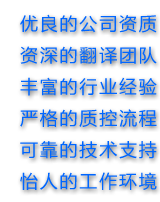日经指数破2万点创15年新高
The Nikkei Stock Average broke the 20,000 mark early Friday morning for the first time since April 2000. Market sentiment has improved recently on expectations of an economic recovery and increased stock purchases by public funds, helping the benchmark index top the psychologically important line.
周五上午,日经指数在2000年4月之后首次突破20000点大关。预期经济复苏,以及公共基金加大债券购买力度,让市场情绪变得更加乐观,使得基准指数超过了重要的心理线。
The yen's slide against the dollar and other major currencies has helped improve Japanese exporters' earnings, and aggregate pretax profit at listed companies for the year ended March is expected to have hit a record high. Against this backdrop, Toyota Motor and other big companies agreed to raise wages during Japan's spring labor negotiations this year. Market players expect higher wages, in turn, will result in stronger consumption. These factors have all contributed to higher share prices.
日元对美元等主要货币的汇率下跌使日本出口收入增加。到今年3月为止,上市公司的年度税前利润总额也有望因此达到历史高点。这一背景下,丰田汽车等大公司在今年春季的劳工协商(又称“春斗”)中同意加薪。市场参与者想要更高的薪资,相应的,也会有更多的消费。这些因素都导致了股价上升。
The last time the Nikkei average was above 20,000 was at the end of dot-com bubble in 2000. After the bubble burst, the index continued to fall, before recovering to the 18,000 level in June 2007. Then the U.S. subprime mortgage problem emerged, and the global financial crisis rattled the market the next year. The Nikkei average fell to 7,054 in March 2009, the lowest since the collapse of Japan's asset-inflated economy in the late 1980s.
上次日经指数突破20000点是在2000年互联网泡沫时期。泡沫破裂后,日经指数持续下跌,直到2007年6月才恢复18000点。此后,美国次贷危机爆发,次年全球金融危机令市场感到不安。日经指数在2009年3月下降到7054点,这是日本上世纪80年代末房地产泡沫破灭以来的最低点。
The current bull market began in late 2012, when Shinzo Abe became prime minister for a second time. Expectations for his economic policy, later dubbed Abenomics, helped rejuvenate the stock market.
此次牛市是从2012年末开始的。当时安倍晋三第二次成为日本首相。他的经济政策后来被称为安倍经济学,对这一政策的期待为证券市场的复苏提供了帮助。
Haruhiko Kuroda took over as governor of the Bank of Japan in March 2013. The following month, in line with market expectations, the BOJ launched aggressive monetary easing measures that included massive purchases of government bonds. The bank surprised the market by implementing additional easing in October 2014.
2013年3月,黑田东彦接任日本央行行长。次月,日本央行实行了符合市场预期的激进的宽松货币政策,包括增加政府债券的购买量。2014年10月,日本央行出乎市场意料,进一步放宽货币政策。
The BOJ has also been purchasing exchange-traded funds as part of its easing measures. Additionally, the Government Pension Investment Fund and other public pension funds in search of higher returns are buying more stocks, adding to the bullish mood of recent months.
作为其宽松政策的一部分,日本央行还买入交易型开放式指数基金。此外,为了更高的回报率,GPIF(年金积立金管理运用独立行政法人)等公共年金基金机构买入更多股票,为市场带来更多乐观情绪。
- 相关文章
- 从电影中看青岛翻译 (2015-4-13 12:28:19)
- 2015年翻译资格考试演讲文稿素材积累2 (2015-4-7 8:40:13)
- 2015年翻译资格考试演讲文稿素材积累1 (2015-4-7 8:38:0)
- mh370报告翻译航空专业人士加入 (2015-3-26 9:20:12)
- 青岛翻译公司:鲁迅曾打算翻译法布尔《昆虫记》 (2015-3-26 9:16:14)
- 6个月内学会任何一种外语 (2015-3-11 9:54:42)
- 青岛翻译公司汇总GRE最实用常见词汇 (2015-3-11 9:52:39)
- 职场需要知道的10条建议 (2015-2-28 11:51:4)
- 雅思听力--有章可循 (2015-1-30 10:21:7)
- 青岛翻译公司让五位名人教你战胜困境 (2015-1-30 10:6:9)
随机文章













